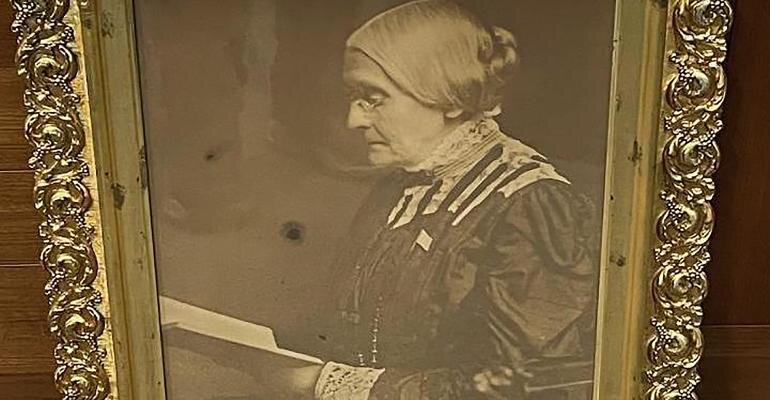Publications

The Trump Administration’s Estate Planning Proposals
The Need For Proactive Estate Planning
While the Trump administration’s proposals have not yet been enacted, they signal a potential shift in how wealth transfer is taxed in the U.S. estate planners and their clients must stay informed and prepared to adjust their strategies based on legislative developments. Whether through permanent estate tax repeal, capital gains tax changes, or other tax reforms, the future of estate planning is evolving, requiring a proactive and flexible approach now, rather than in the last few weeks of 2025.

Power of Attorney, Debt and Death: What you need to know
A power of attorney — POA, for short — isn’t a person or entity. Instead, it’s a legal document that passes decision-making power from one individual or entity to another. You can’t “be” a power of attorney. But you can attain it if an individual (the principal) authorizes you as an agent or attorney-in-fact. Learn about the types of POA and your responsibilities, as well as what debts don't belong to your acting as Power of Attorney.

Kamala Harris Endorses American Housing and Economic Mobility Act Tax Proposals
In a significant development, the Kamela Harris presidential campaign has announced its endorsement of the estate tax reforms outlined in the American Housing and Economic Mobility Act of 2024. This support from the Harris campaign is expected to galvanize broader Democratic backing for the bill, potentially enhancing its chances of passage. By aligning with these tax proposals, the Harris campaign is positioning itself as a champion of economic justice and housing affordability—key issues in the upcoming election.
Don’t Blame Venture Capitalists For SVB's Collapse
Better decision-making processes, not railing against venture capitalists, are some of the lessons that should come out of the Silicon Valley Bank's collapse. From an estate planning perspective, the issue is not so much what the venture capitalists did, as much as how they came to the decision they did to advise their portfolio companies to withdraw funds from the bank. This is most likely because most venture capitalists who are controlling the funds are, at their core, entrepreneurs and use an action-based decision-making process.

What Are Durable Powers of Attorney, Living Wills, Health Care Proxies, Declarations of Homesteads and Beneficiary Designation Forms?
Documents used in estate planning are Durable Powers of Attorney, Healthcare Proxies, Declarations of Homestead and Beneficiary Designation Forms, are in many ways ancillary to the Will and the Trust. It is important to have all of these documents up to date and properly coordinated with your estate plan.

Estate Planning During A Bear Market
In April of 2022, the stock market officially entered Bear Market territory. Bear Markets occur when the market declines more than 20% below a recent market high, in this case the 52-week market high. Why the market has declined has been attributed to many different factors, such as inflation, the energy shortages, the War in Ukraine, and so on – each contributing to investor’s fears and a desire by investors to cut their losses. In the short term, the volatility of the markets will remain. Estate planning is a long-term strategy, so what about the long term?

Common Client Tax Planning Problems Cheat Sheet
Although there are many new and interesting tax planning techniques, sometimes it is the tried-and-true standards that are overlooked, that may best provide the solutions to estate and income tax problems. Here is a useful list of estate planning scenarios and possible solutions.

Estate Planning For Foxes And Hedgehogs
Most estate planners think like hedgehogs. They know everything about estate planning. That works well for most clients, but others need the more difficult help of a fox, especially entrepreneurs (and people with attention-deficit/hyperactivity disorder).
In other words, clients who make impulsive, sub-optimal decisions, whose choices are guided by smaller, immediate rewards instead of larger, long-term ones, and who make such errors in their planning, organization, self-regulation, and prioritizing when choosing courses of action.

Have an S Corp From Before 1996? Tax-Free Conversion May Be Possible
An outline of The Build Back Better bill’s key tax provisions that affect partners, partnerships and other passthrough entities such as S Corps

The Basics: Estate Planning In Confusing Times
Estate Planning is a process -- a process of maintaining and protecting your control of assets during your lifetime, and transferring your assets to your beneficiaries at death. The steps in the Estate Planning process are:

New Report On Ownership And Professional Management Of Family Enterprises
Estate planning is all about strategy, advocacy and marshalling both financial resources and competent management resources. There is a great deal of value in this report, especially for estate planning advice for both present and future owners of family enterprises.

Lessons To Be Learned From Failed Celebrity Estates
If you have an Estate Plan in place, this is a good time to review your existing documents to make sure they still accomplish your wishes. Here are the questions you should think about:
Does your Will match your wealth transfer wishes?
Are your assets titled correctly, and have you set up the appropriate beneficiary designation forms?
Have you established and funded all necessary Trusts? …

10 Estate Planning Must-Dos Before You Travel
Many travelers manage risk by purchasing trip cancellation insurance. Savvy travelers see risks from a larger perspective, though, manage worst-case scenarios when traveling abroad. Pre-travel estate planning is at the top of their list as they take into account what might happen if they are injured or worse while far from home. Here are 10 items that you'll want to add to yours.

For The 99.5 Percent Act - What It Is, What It Does And What To Do About It.
On March 25, 2021, Senator Bernie Sanders (I-VT) and Senator Sheldon Whitehouse (D-RI) introduced the “FOR THE 99.5 PERCENT ACT” which will dramatically and historically change estate planning by reducing the federal estate and gift tax credits, increasing estate, gift, and GST tax rates and including assets in certain trusts that are not now includible in estates. The changes would be effective for decedents dying and gifts made on or after December 31, 2021. Planning: This is a “use-it-or-lose-it-now” provision which means that your $11,700,000 exemption can be passed either by dying or by making gifts. Transfers must take place before the effective date of these changes. The following is a summary of the changes

The Challenge Of Trustee Selection
The most challenging decision an estate planner must make is who to recommend as a trustee for a client. Trusts execute the estate plan, and the trustee is the lynchpin of any trust. The trustee plays multiple roles; a financial and ministerial role; they are responsible for the prudent investment of assets as well as administrative and executive duties of overseeing the trust; the role of consigliere to the family, a trusted advisor and counselor willing to argue with the client when needed, without ambition and giving dispassionate advice

Will Changes To The Tax Law Be Retroactive?

What to Do When You Find Susan B. Anthony in Your Attic
You come across an item with great financial, social and historical value or realizing that you now possesses a long-forgotten cache of art or collectibles. What steps should you take to preserve assets or get the guidance to properly sell unique items?

How To Divide Personal Property In An Estate
When I help settle an estate the most challenging task is mediating what is the “best” way to divide the jewelry, art, furniture and other tangible personal property of the deceased among their heirs. People behave irrationally when they feel that they were promised something under the will. They already feel that the item is theirs. This is compounded by the friction between and among family members that existed during the decedent’s lifetime.
So, what is the best way to divide your assets? The fact is that there is no “best” way to divide assets, but there are some things you can do, or refrain from doing, to help avoid a family fight.

FFI: Family Offices and Artwork: Mitigating the risks
Families that use family office services expect family office professionals to help them mitigate risks, both to investments and to concentrated illiquid holdings, such as real estate or closely-held businesses. What sometimes goes overlooked, however, is how to mitigate the risks of ownership of artworks, numismatics, jewelry, cars, and other collectibles. Risk mitigation for these treasures begins with documenting what the client has, aggregating the individual items into collections, and beginning the management of the items as a collection.

Securing Treasures: What HNW Owners, Advisors Should Do
Families that use family office services expect family office professionals to help them mitigate risks, both investment and concentrated illiquid holdings, such as real estate and closely held businesses. Sometimes overlooked is how to mitigate the risk of the ownership of artwork, numismatics, jewelry, cars and other collectibles. Risk mitigation for these treasures begins with knowing what your client has, aggregating the individual items into collections and beginning the management of the items as a collection.
